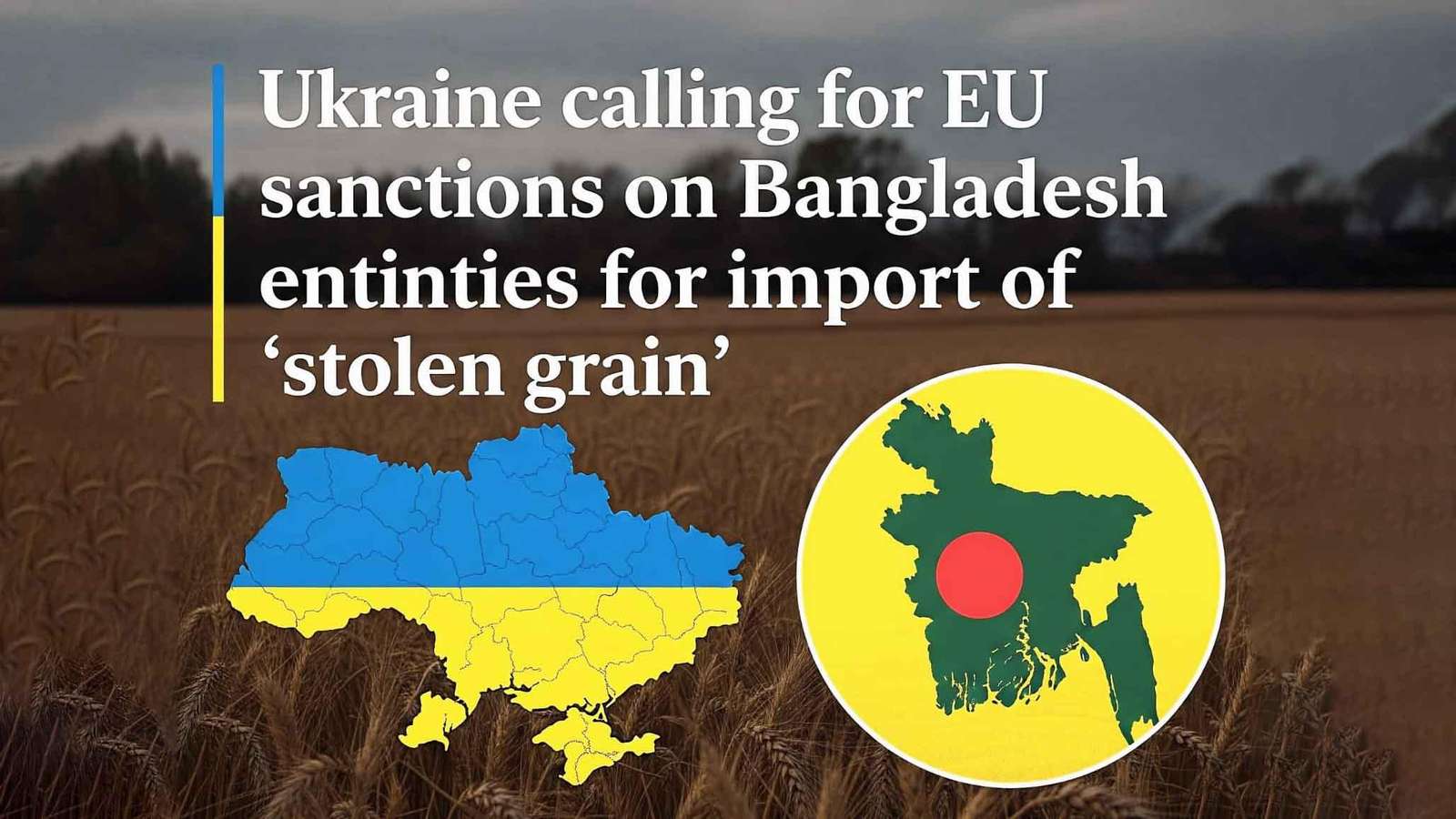Kyiv urges the EU to penalize Bangladeshi entities for allegedly purchasing wheat plundered from occupied Ukrainian territories, escalating a diplomatic row after warnings to Dhaka went unheeded.
Ukraine is set to formally request that the European Union impose sanctions on Bangladeshi companies it claims are importing grain unlawfully seized by Russia from occupied Ukrainian regions. This move comes after repeated diplomatic warnings to Dhaka failed to deter the trade, a top Ukrainian diplomat in South Asia confirmed.
For years, Kyiv has accused Russia of stealing its grain, a practice that intensified following the 2022 full-scale invasion, which saw Russian forces occupy significant agricultural territories in southern Ukraine. Moscow, however, maintains that these territories are now part of Russia and therefore no theft is involved.
According to confidential diplomatic communications reviewed by Reuters, the Ukrainian Embassy in New Delhi has sent at least four letters to Bangladesh's Ministry of Foreign Affairs this year. These letters urged Bangladesh to reject over 150,000 tonnes of grain, allegedly stolen and shipped from the Russian port of Kavkaz. The communications, which included specific vessel names and registration numbers, highlighted shipments originating from Crimean ports like Sevastopol and Kerch (occupied since 2014), and Berdiansk.
Ukraine's Ambassador to India, Oleksandr Polishchuk, stated that Dhaka has not responded to these communications. He added that Kyiv will now escalate the matter, as intelligence suggests Russian entities are intentionally mixing grain procured from occupied Ukrainian territories with Russian wheat to obscure its origin. "It's a crime," Polishchuk asserted, stating that Ukraine will share its investigation with EU colleagues and request appropriate measures.
A June 11 letter from the Ukrainian Embassy explicitly warned Bangladesh of "serious consequences" of sanctions for accepting "stolen grain" deliveries, emphasizing that such purchases fuel "humanitarian suffering." The letter further cautioned that sanctions "may extend beyond importing companies and could also target government officials and the leadership of ministries and agencies who knowingly facilitate or tolerate such violations."
Anitta Hipper, EU Spokesperson for Foreign Affairs and Security Policy, confirmed that the vessels in question are not currently under restrictive measures. However, she noted that the EU's sanctions regime targets activities undermining Ukraine's food security, including the transportation of "stolen Ukrainian grain." She added that "any proven involvement of vessels in shipping stolen Ukrainian grain could provide the basis for future restrictive measures."
Bangladesh's Foreign and Food Ministries have yet to comment on the matter. However, a Bangladeshi food ministry official stated that Dhaka prohibits imports from Russia if the grain originates from occupied Ukrainian territory, asserting that the country imports no "stolen wheat."
This diplomatic tension unfolds against a backdrop of Russia's significant role in the global grain market. Reuters estimates, based on official Russian data, indicate that Russia-controlled territories, excluding Crimea, accounted for approximately 3% of the total Russian grain harvest in 2024. Despite a reported 14% decrease in Russia's overall grain harvest in 2024 compared to the previous year, with wheat production down by 16%, Bangladesh was the fourth-largest buyer of Russian wheat in May, according to Russian grain transporter Rusagrotrans.
A Russian trader, speaking anonymously, admitted the difficulty in tracking the origin of grain once it's loaded for export at a Russian port. "These are not diamonds or gold. The composition of impurities does not allow for identification," the trader stated, highlighting the challenge in verifying the provenance of mixed grain shipments.
Ukraine's agricultural sector remains a critical part of its economy, and Kyiv has been actively working to counter illegal exports. In April, Ukraine detained a foreign vessel in its territorial waters suspected of involvement in the illegal trade of stolen grain, following a similar seizure of a cargo ship and arrest of its captain last year. The EU has also sanctioned 342 ships identified as part of Russia's "shadow fleet," accused of circumventing Western restrictions on oil, arms, and grain movements. Ukrainian law explicitly prohibits any voluntary trade between Ukrainian producers in occupied territories and Russian entities.

_4.jpg)


 and Dawn Wicks.jpeg)



.svg)


